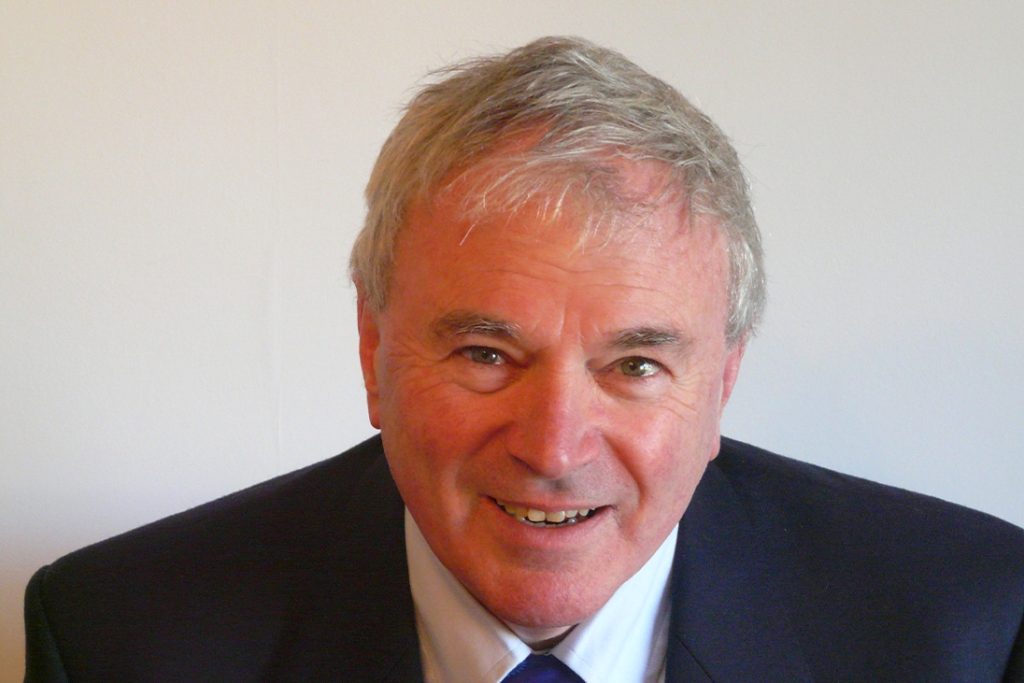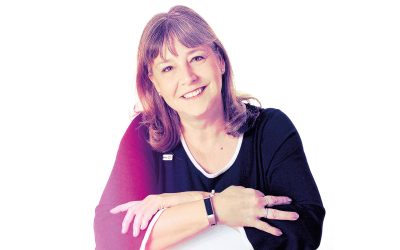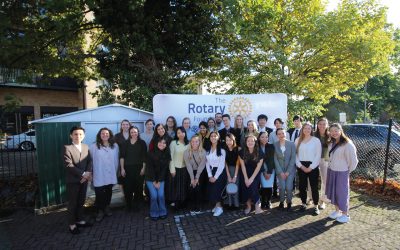Name: Mike Parry
Rotary Club: Cardiff Bay Rotary
Occupation: Chartered Quality Practitioner
Listen to this article
You have long been involved with The Rotary Foundation, why does it mean that much to you?
As I learnt about The Rotary Foundation’s (TRF) vast range of humanitarian and educational projects, a frequent question was ‘where does the money come from’?
It was this simple question which led me to realise Rotarians’ generosity to the Foundation.
I wanted to be involved. Vocationally, the subset of auditing fitted nicely into TRF’s cadres. At the time, this was constrained to sample audits of projects but now includes offering advice on preparing grant applications.
My first TRF audit was to a village in Transylvania where an orphanage was managing the adverse consequences of communism.
Further audits have taken me across Europe, and to Remba, a remote island in the middle of Lake Victoria.
The audit involvement led me to a heart-searching experience when I was RI’s representative for a World Health Organization’s and a post-polio outbreak surveillance team to Ethiopia.
There, I experienced the moment a young boy and his family, who had been ostracized from their village, were told that the boy did not have polio, so they could return to the village and restart their lives in a desolate area where community support was essential.


Mike Parry is a member of Cardiff Bay Rotary and provides auditing for Rotary Foundation projects.
You are involved with The Rotary Foundation of the United Kingdom, what is that all about?
The link with Foundation and how funds are raised has underpinned my Rotary experience. The question of how to maximize contributions is never far from my mind, the UK Government provided one answer through a scheme for charity donations to benefit tax payers through Gift Aid.
RFUK is a dynamic organisation and benefits from new initiatives such as Polio Plus Society which joins other recognition schemes from Sustaining Members right through the spectrum to Arch Klumph Society members to fit all pockets of those living and those passed on as legacy agreements benefit RFUK as well as Inheritance Taxation.
You are part of the Disaster Recovery Grant scheme for the Ukraine, how successful has that been?
Rotary GB&I was fast to establish a taskforce of Rotarians with specialised skills when the Ukraine conflict started.
The taskforce quickly established a protocol on the lines of TRF’s Community assessment model. TRF’s Disaster Response Grants were maximized consuming all the donated funds.
Outside of Rotary, you have a passion for croquet – is it really a brutal game?
The game looks so simple yet frustration levels quickly build up when one realises the playing surface is constantly changing and the balls are only very slightly smaller than the hoops.
My competitive streak has been rewarded with a place in the Welsh team for the Home Internationals and a place in the World Team Championships where we achieved a place in the finals against the host nation Spain.
Rotary gets a mention at each game as the ‘old’ Rotary logo on my white fleece is still in use.


























































